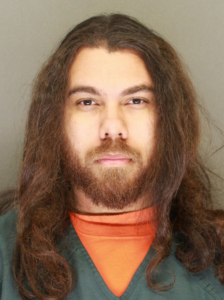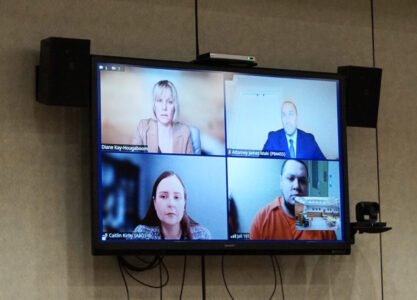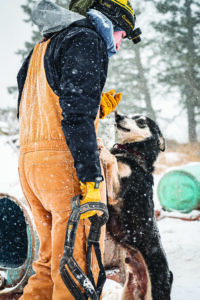A Commission of their own

Greg Markkanen
LANSING — U.P. state legislators are vying for more concentrated and U.P. specific rule making in regards to natural resources with the introduction, last month, of House Bills 4783-4786. The bills introduced by State Reps. Dave Prestin (R-Cedar River), Greg Markkanen (R-Hancock), Karl Bohnak (R-Deerton) and Parker Fairbairn (R-Harbor Springs) would create the U.P.’s own Natural Resource Commission, which would be able to focus on the rules and suggested legislation for the peninsula’s unique wildlife and landscapes.
The bills are currently sitting with the House’s Natural Resources and Tourism Committee and are awaiting a committee hearing before being reintroduced to the House floor. With the state budget now resolved, bills can be further discussed without uncertainty of a government shutdown.
The distinction between the two peninsulas has been a subject of discussion for regulations across the board for more than just natural resources. The two peninsulas have different ecosystems, economies, cultures and more. The Upper Michigan legislators argue the implementation of certain laws statewide do not address the aspects which make the U.P. different to lower Michigan, and HB 4783-4786 would grant more local control regarding hunting, fishing and other natural resources regulations.
“We have such different conditions between the Upper Peninsula and the Lower Peninsula,” Bohnak said. “And one of the main reasons is we have apex predators here in the Upper Peninsula. We’re talking wolves and now breeding cougars and not to mention bears.”
The first cougar cubs to be born in Michigan were discovered in Ontonagon County in March and the wolf population’s management has been a heavily debated issue among Michigan lawmakers and citizens. Markkanen said there is anticipation wolves will be delisted on the federal level which would allow state management. Bohnak added while bears are present in the Lower Peninsula, the concentration and population is higher in the U.P. Deer are animals which are found on both peninsulas, but have differing populations and live in different climates.
“The deer population downstate is just booming, and the DNR won’t raise the bag limit,” Markkanen said. “The ratio from buck to doe is so flipped. The management of the winter habitat and everything up here compared to down there is different.”
Markkanen brought up the predators Bohnak listed, and added coyotes among the animals which could benefit from more local regulations. He said coyotes can contribute to fawn predation in the spring which is why 12 month predator hunts can help the deer population.
In regards to how a separate Natural Resources Commission would work, Bohnak said the state governing body would still have a say, but the commission would be able to focus on elements which are unique to the U.P. Markkanen explained members of the commission would be nominated by legislators then be approved by the governor. He emphasized the commission would be most beneficial to U.P. residents.
“I think sportsmen across the 15 counties would at least like to have a commission that they could voice their concerns, to voice their opinions without having to travel down to Lansing to go in front of the NRC, where they have the majority of their meetings and gatherings,” Markkanen said. “It’s usually either in Lansing or Ann Arbor.”
Most monthly meetings take place downstate, and Markkanen acknowledged the upcoming meeting to take place in Houghton on Oct. 9, but it is the only meeting in the U.P. for the entire year. The advocacy for local control has been something present among many sportsmen in the U.P., and the owner of Northwoods Sporting Goods in Hancock, Rick Freeman, has spoken his mind many times about local natural resource regulations. Freeman is very hopeful a U.P. Natural Resources Commission can become reality. He says many in the U.P. feel abandoned by politicians especially from downstate, and welcomes the opportunity for a commission made up of people who live in the area they could be regulating.
“The U.P honestly kind of gets put on a back burner a lot,” Freeman said. “We get forgotten because we don’t have Detroit. We don’t have the car production capital of the world. I think Marquette is our most populated city and it is dwarfed by Detroit, Lansing, Kalamazoo and even Traverse City. So I just think if you could get more local representative one on one, I honestly think it’s just they would listen to our needs better because they live here.”
Freeman said he still has customers saying they are seeing more and more wolves as the years progress and it would be beneficial to have a say in how they are regulated. “Don’t say we don’t have that problem,” he said. “So unless we have good representation for the U.P., if it’s a separate committee or not, Lansing may not even listen to us. We need another predator hunt basically, and that’s the one thing I’ve been trying to push.”
Freeman added the deer regulations made in the U.P. need to continue to address the buck to doe ratio, saying two years ago when hunting he saw 19 does before a buck came into view. He said at the end of the day however, he believes a U.P. Natural Resources Commission could be the best thing for conservation in the region.
“It’s all about conservation. It’s all about ‘Is the next generation going to be better off than you and I are right now?’ Are my kids going to be able to enjoy the natural resources and everything and have a local voice? They (a U.P. Natural Resources Commission) could pinpoint maybe certain problems or areas of concern that Lansing may have overlooked, with the local commission going out and talking to the local residents to be more personal,” Freeman said.
While the concerns of local sportsmen and outdoorsmen were cited as a large reason for the U.P. commission, Markkanen emphasized the commission must remain science based and cannot be driven by emotion.






